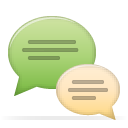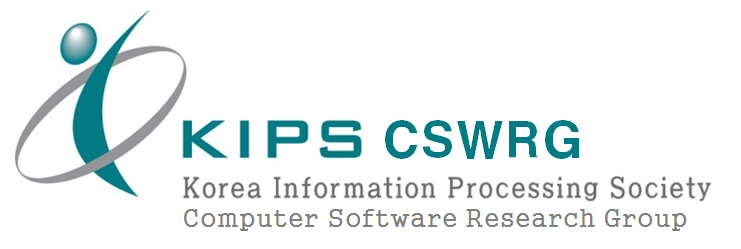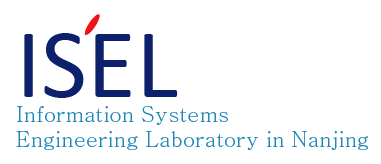 Registered Workshops
Registered Workshops
SMSE 2017
Call for papersSystem Modeling, Simulation and Evaluation (SMSE) are vital technologies needed in Model-Based Systems Engineering(MBSE) to guide the design of complex systems. MBSE is the idea of achieving code reuse and perform maintenance and product development through the use of software modeling technology and by splitting the production of software into two parallel engineering processes namely domain engineering and application engineering. The improvement of System Modeling, Simulation, and Evaluation will improve the preference of MBSE. The SMSE workshop provides a forum to bring together researchers and practitioners working towards improving the System Modeling, Simulation, Evaluation, Model-based Systems Engineering and their related areas. It will bring together a diverse group of experts to advance the concepts and application of SMSE. This includes innovative methodologies, techniques, tools, management and applications in this challenging area, and provides a chance of exchanging ideas on them. The SMSE Workshop collaborates and is co-located with Future-tech, giving researchers and practitioners in the field a platform to present their results and experience to a broader audience.
Workshop Chair: Prof. Xuefeng Yan

Topics, but are not limited to:
- Challenges and technological advances for modeling & simulation
- Complex system modeling paradigms and languages
- Simulation Optimization
- Multilevel modeling and simulation
- Big Data Simulation & Decision Making
- Model reuse, repositories and retrieval
- Distributed modeling and simulation
- Enhancing the impact of modeling and simulation
- Domain Specific Modeling Applications
- Evaluation indexes for complex system
- Comprehensive evaluation method of complex system
- Reliability evaluation of complex system
- Domain modeling of systems engineering
- Technologies and Standards for MBSE
- Prototyping and Simulation of Systems Engineering
- Monitoring and Evolution of Systems Engineering
- Computational methods of MBSE
- Testing ,Analysis, Verification, Validation of MBSE
- Management Issues in MBSE
- Methods and tools of MBSE
- Applications and Empirical Studies of MBSE
CFP: Download
Submission: Please submit your paper (pdf format) directly to yxf@nuaa.edu.cn
 by the deadline.
by the deadline. BlockFinTech 2017
Call for papersBlockchain and Financial Technology (BlockFinTech) recently drawn much attention from interested stakeholders in a wide range of industries. The BlockFinTech would stand for all of continuously evolving and converging information technologies and Finance including Bitcoin, Digital Currencies, Payments ecosystem, P2P, network forensics, Scalability issues and solutions, Fraud detection and financial crime prevention, Case studies, and New applications of the BlockFinTech. The BlockFinTech 2017 workshop provides an opportunity for academic and industry professionals to discuss recent progress in the area of blockchain and financial technology.
Workshop Chair: Prof. James (Jong Hyuk Park)

Topics, but are not limited to:
- Decentralized Platforms
- Digital Currencies
- Payments ecosystem
- Peer to Peer
- New threat models and attacks in BlockFin
- Defenses and countermeasures
- Network forensics
- Simple payment verification modes
- Anonymity and privacy issues
- Incentive mechanisms
- Scalability issues and solutions
- Fraud detection
- Financial crime prevention
- Applicability of the technology in financial markets
- Legal, ethical, and societal aspects
- Case studies (for instance, of adoption, attacks)
- New applications
CFP: Download
Submission: http://www.confmanager.net/ft2017r2 (Topic: BFT2017)
***Author(s) MUST select topic as "BFT2017" at the submssion system****.
UCC 2017
Call for papersCloud Computing is an inevitable consequence when the development of electronic information and technology has reached the service level for anytime and anyplace. It is developed from our former existing technology, including Embedded system technology, Distributed systems, Computing algorithms, web technology. Cloud Computing has not only become a major model for connecting people to information, but also become the important platform for handling big data and intelligent applications. Recent advances in ubiquitous computing and Services have paved the way for exciting cloud worlds all the time and everywhere. Their ubiquitous infrastructure and infrastructure-less cloud systems always affect every aspect of our life to the point that they are hidden inside various appliances. There are a lot of natural Algorithms, Systems and Applications outcome from technological advances in ubiquitous cloud systems. For example, ubiquitous real-time image processing based on cloud systems, ubiquitous SoC specification based on cloud systems, ubiquitous specification and design of systems based on cloud systems, distributed computing based on cloud systems, dependable computing based on cloud systems, pervasive communications based on cloud systems, Multimedia Services based on cloud systems, and agent technologies based on cloud systems, etc.
| Workshop Chairs: | Prof. Neal N. Xiong  |
Prof. Xuefeng Liang  |
Topics, but are not limited to:
(1) Hardware and Software based on cloud systems
- Control Structures and Microprogramming
- Arithmetic and Logic Structure
- Input/Output and Data Communications
- Performance and Reliability
- Special purpose and Application-based Systems
- Performance of Systems
- Computer System Implementation
- SoC Specification
- Specification and Design of Embedded Systems
- Ubiquitous Dependable computing
- Service oriented computing
- Distributed event-based middleware
- Workflow management
- Special domain middleware
- Grid computing
- Realtime Image Processing
- Multimedia Services
- Complex information system based on network
- Web application
- Communication Networks
- Theory of Computation based on cloud systems
- Information Systems based on cloud systems
- Computing Methodologies based on cloud systems
CFP: Download
Submission: Please submit your paper (pdf format) directly to xiongnaixue@gmail.com
 by the deadline.
by the deadline. FIDPS 2017 Spring
Call for papersFire ICT Deaster Prevension System Workshop 2017 Spring (FIDPS2017 Spring) includes any topics related to ICT-based deaster prevension research. For examples, the algorithms of ICT-based earthquake detection systems, drone-based deaster recognition systems, and ICT traffic managing systems can be included.
Workshop Chair: Prof. Yunsick Sung

Submission: http://www.confmanager.net/ft2017r2 (Topic: FIDPS2017 Spring)
***Author(s) MUST select topic as "FIDPS2017 Spring" at the submssion system****.
 Call for Workshops / Special Sessions(Pending)
Call for Workshops / Special Sessions(Pending)


